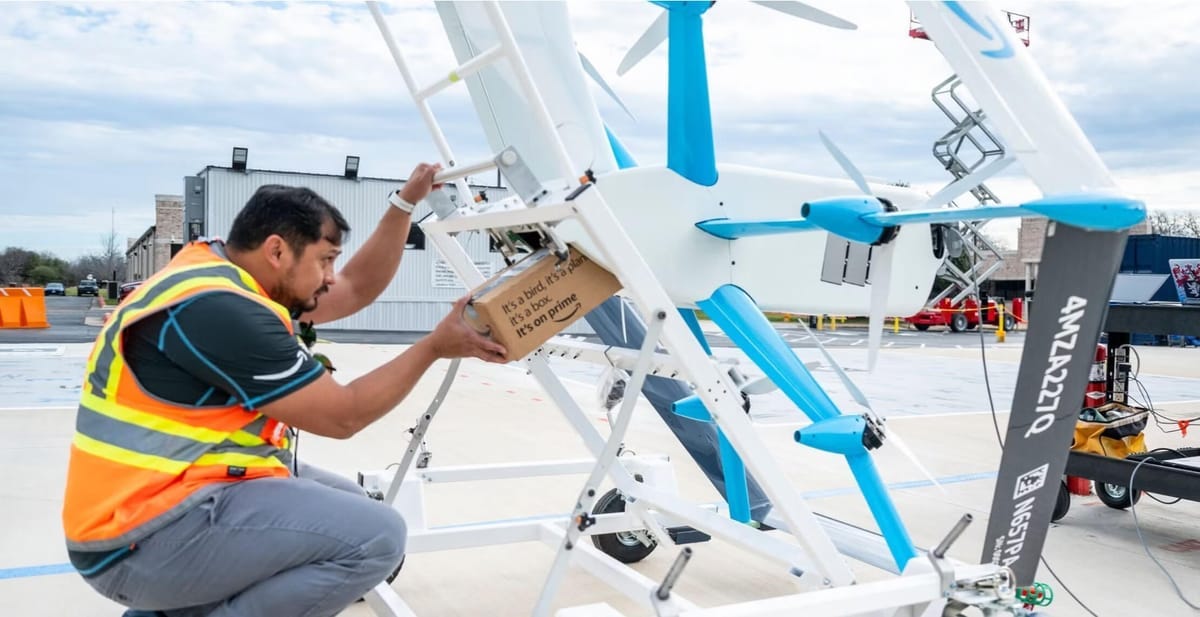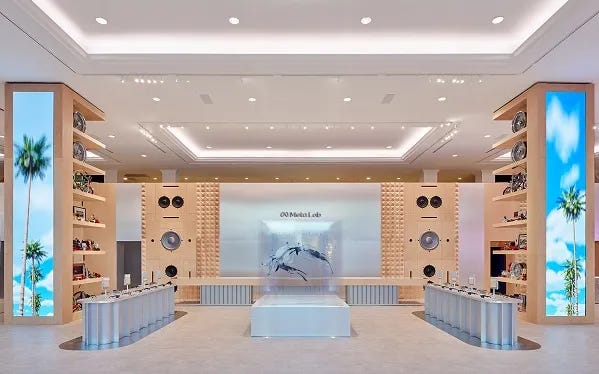This Week in Retail #51
Happy Monday Friends,
Last week was a whirlwind to say the least. An election has a drastic impact on business process, sentiment and generally, no matter the outcome, causes hesitation across all industries, and retail is no exception.
Tariffs are already on the front of everyone’s mind…The American Apparel & Footwear Association (AAFA) has began to urge the incoming Trump administration to reconsider proposed tariffs, fearing they could drive inflation. Trump’s plan includes a minimum 10% tariff on imports, with 60% specifically targeting China. Economists and S&P Global Ratings analysts warn that this could increase input costs, leading to higher consumer prices and a slowdown in U.S. GDP. Companies may also look to diversify their supply chains to reduce reliance on China.
Moody’s analysts highlighted potential credit risks for retailers due to possible abrupt policy changes in tax, trade, immigration, and climate under a Republican-led government. They noted Trump’s protectionist approach could disrupt global supply chains, potentially causing labor shortages due to immigration restrictions.
The AAFA also cited the historical impact of the 1930 Tariff Act, linking it to the Great Depression, and argued that current tariffs from Trump’s first term continue to raise costs for American consumers, particularly affecting low-income and female shoppers.
There was unfortunate news surrounding the retail community……Bernie Marcus, cofounder of The Home Depot, passed away at the age of 95. Marcus and Arthur Blank founded the company in 1978, revolutionizing the home improvement industry with their warehouse-style stores and customer-first approach. Today, The Home Depot has grown into a retail giant with annual sales of $152.7 billion. Marcus also left a significant legacy in philanthropy, contributing millions to medical research, veterans’ support, and other causes. His contributions continue to influence both the retail industry and the broader community.
Beyond Inc. announced plans to lay off 20% of its workforce, according to an 8K filing with the U.S. SEC. The majority of these cuts will take place in the fourth quarter. Additionally, Chief Product Officer Carlisha Robinson was terminated without cause as part of this reduction. Appointed as chief customer officer in March, Robinson will receive severance benefits as outlined in her termination terms. Beyond Inc. projects its layoffs will cut fixed costs by about $20 million annually, aiming to create a more adaptable, tech-driven business model focused on affinity and data monetization. The job cuts follow recent investments in other retailers totaling $65 million. On Oct. 15, Beyond announced a $40 million investment in The Container Store, contingent on refinancing agreements, which would give Beyond a 40% stake. Beyond also announced a $25 million debt and equity investment in Kirkland’s Home, a deal that will restore the Bed Bath & Beyond brand's physical store presence, 18 months after it closed all locations and shifted to an online-only model.
American Freight, a discount furniture and appliance retailer with over 328 stores in 41 states, is permanently closing all locations as its parent company, Franchise Group, undergoes Chapter 11 bankruptcy. Impacted by inflation and broader economic challenges, American Freight has struggled to maintain profitability. Liquidation sales, offering up to 30% off all inventory, began on November 5, with CEO Ian Fredericks urging shoppers to buy early for the best selection. Founded in Ohio in 1994, American Freight has 15 stores in California, primarily in the southern region.
Blackstone Real Estate has reached an agreement to acquire Retail Opportunity Investments Corp. (ROIC), a major real estate investment trust (REIT) that owns over 90 grocery-anchored shopping centers across the United States. This acquisition is a strategic move for Blackstone, as grocery-anchored retail centers have shown resilience in the face of shifting consumer behaviors and the e-commerce boom. Unlike other retail spaces, grocery-anchored centers continue to attract regular foot traffic, benefiting from the stable demand for grocery essentials, which are less susceptible to online substitution.
Retail Opportunity Investments Corp. has a strong presence in high-density, affluent urban and suburban areas, making these properties especially appealing for long-term investment. These centers are often situated near major highways or within established neighborhoods, giving them steady value in prime real estate locations. Blackstone’s acquisition will expand its portfolio of commercial real estate in a segment with consistent, stable returns.
In the broader context, this acquisition is also part of Blackstone’s strategy to focus on high-quality assets that provide income stability amid changing retail market dynamics. By adding ROIC’s properties, Blackstone is strengthening its retail holdings with properties that are less vulnerable to economic downturns and online retail growth. This move signals continued investor interest in grocery-anchored retail as a durable segment in commercial real estate.
In some tech news…..Amazon has officially launched its Prime Air drone delivery service in Tolleson, allowing eligible customers to receive orders within an hour. Using the advanced MK30 drone, Amazon aims to streamline last-mile delivery by making it faster, especially for time-sensitive purchases. Tolleson joins the few locations in the U.S. where Prime Air is available, as Amazon continues expanding the program. With recent advancements, including quieter and more efficient drone technology, Amazon's goal is to meet delivery demands with minimal environmental impact, improving its fulfillment capabilities in densely populated areas.
Salesforce is hiring 1,000 new salespeople to support the growth of Agentforce, its latest AI-powered agent product. CEO Marc Benioff highlighted strong momentum for Agentforce, which launched publicly last month and is already used by major brands like Saks and OpenTable. The tool operates autonomously, handling tasks like customer support and sales development without human involvement. This hiring push signals Salesforce’s commitment to leading the AI agent market as competition intensifies, with rivals like Microsoft and ServiceNow also advancing their own AI assistant technologies.
Meta has opened a pop-up retail store in Los Angeles to showcase its smart glasses, including the Ray-Ban Stories. This venture is part of Meta’s broader push into augmented reality (AR), offering customers a chance to try on and experience the wearable tech firsthand. The store not only highlights Meta's smart glasses but also serves as an opportunity to familiarize consumers with its AR capabilities.
Big Lots is growing its digital footprint with the launch of their new app designed to improve the shopping experience for members of its Big Rewards loyalty program. Available on both the Apple App Store and Google Play Store, the app offers in-store rewards, a personalized dashboard, and exclusive notifications for special deals. A key feature, "Rewards Ready" notifications, alerts users to new rewards to help them maximize savings.
The holidays are the season of retail partnerships……E.l.f. Beauty announced it will soon launch in select Dollar General stores, aiming to reach underserved markets, particularly in rural areas. Dollar General’s focus on serving communities with populations of 20,000 or fewer aligns with E.l.f.’s mission to increase accessibility to premium beauty products. E.l.f. CEO Tarang Amin emphasized the goal of offering high-quality beauty options beyond the reach of traditional major brands. While the company did not disclose how many stores will carry E.l.f. products initially, Amin stated they would evaluate the program’s success before planning any further rollout.
Build-A-Bear Workshop and Sanrio announced a new collaboration to create a Hello Kitty and Friends-themed retail experience, with the first location opening November 15 at Westfield Century City in Los Angeles. Hello Kitty will personally host the grand opening and ribbon-cutting ceremony, offering the first 50 guests a special gift. The partnership also includes a holiday collection of Sanrio plushies, featuring festive Hello Kitty, Cinnamoroll, and Kuromi options, available online and in stores.
Sheetz now accepts cryptocurrencies for in-store purchases at all locations through a partnership with Flexa. Customers can pay with popular cryptocurrencies like Bitcoin, Ether, Litecoin, and stablecoins such as USD Coin. While cryptocurrency hype has declined since 2021, digital currencies continue to gain traction in the convenience store sector through payment integrations and the addition of cryptocurrency ATMs.
Global cryptocurrency adoption is nearing a key threshold, with 7.51% of the world’s population now using digital currencies, as reported by MatrixPort. Projections suggest this could rise above 8% by 2025, indicating a shift toward mainstream financial integration. Key to this growth is institutional interest, with major firms like BlackRock contributing to greater trust and legitimacy for digital assets.
Markus Thielen, founder of 10x Research, highlighted Bitcoin's central role as a store of value, especially during economic uncertainties, which has historically boosted demand, such as during the European debt crisis and the yuan’s devaluation. The MatrixPort report emphasizes that institutional involvement is driving adoption but notes persistent challenges, including regulatory issues, market volatility, and security risks from hacks and scams. Additionally, large sell-offs by institutional investors could heighten market instability in response to economic shifts.
Bitcoin hit a record high above $82,000 on Monday, boosted by President-elect Donald Trump’s commitment to making the U.S. a hub for the digital asset industry, including plans for a national bitcoin reserve. The cryptocurrency has surged from a low of $38,505 earlier this year, previously peaking in March amid excitement over newly approved bitcoin ETFs. Meanwhile, crypto exchange FTX is suing Binance and its founder, Changpeng Zhao, seeking $1.8 billion allegedly transferred by FTX’s former CEO, Sam Bankman-Fried.
And to finish with an American classic….Ralph Lauren is defying current challenges faced by many luxury brands in China, where factors like the real estate crisis and "luxury shaming" have dampened consumer demand for flashy products. In its fiscal Q2 2025 report, Ralph Lauren revealed that global same-store sales rose 10%, with Asia leading at an 11% increase, driven largely by China's growth in the low teens. While China only contributes 8% to Ralph Lauren's overall revenue, the brand’s understated, all-American style is resonating well there, contrasting with the decline seen by luxury giants like LVMH and Kering. This trend aligns with the Chinese government’s push against conspicuous wealth, making Ralph Lauren’s “classic, quiet luxury” appeal a strategic advantage..
That’s all folks….have a great week.





